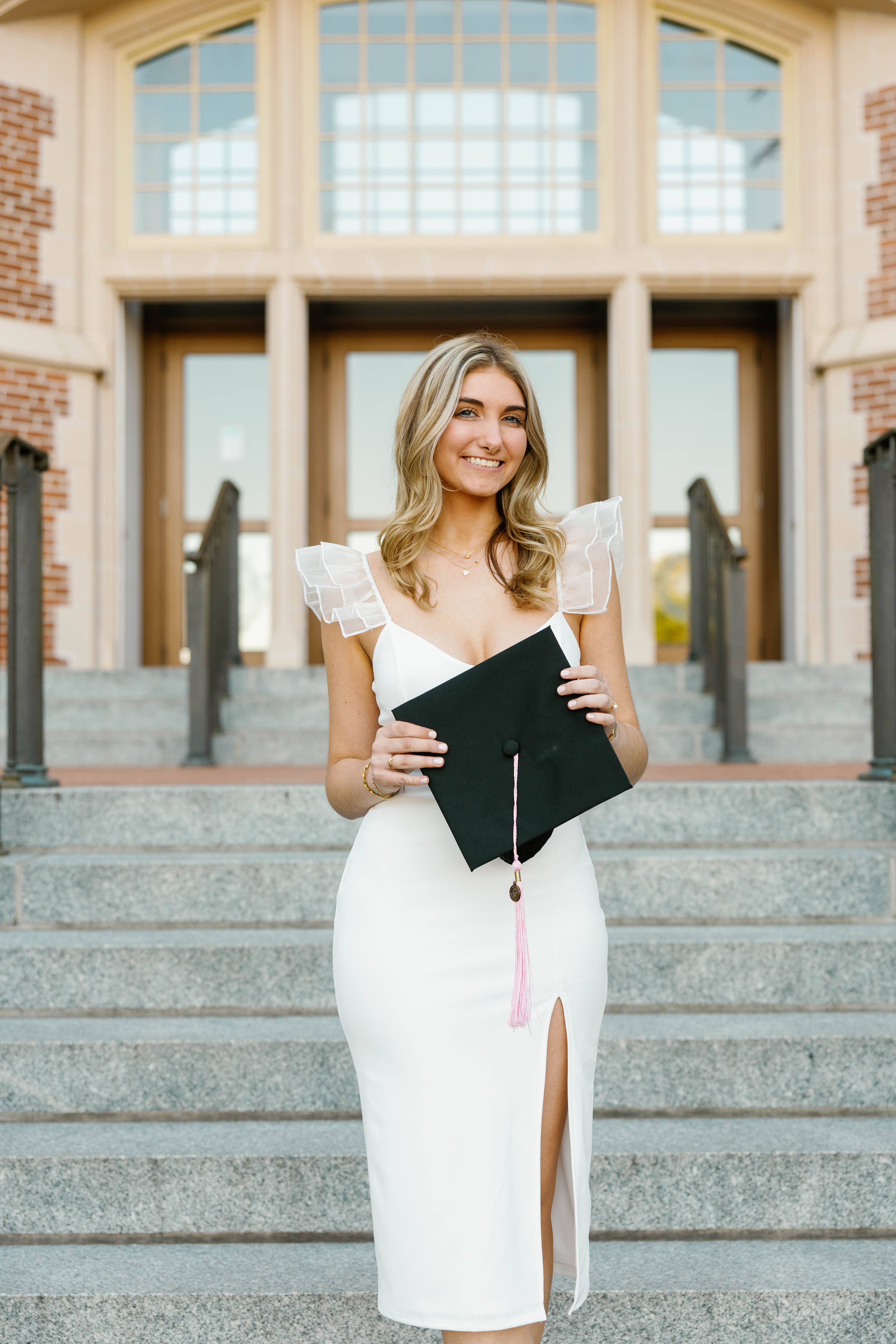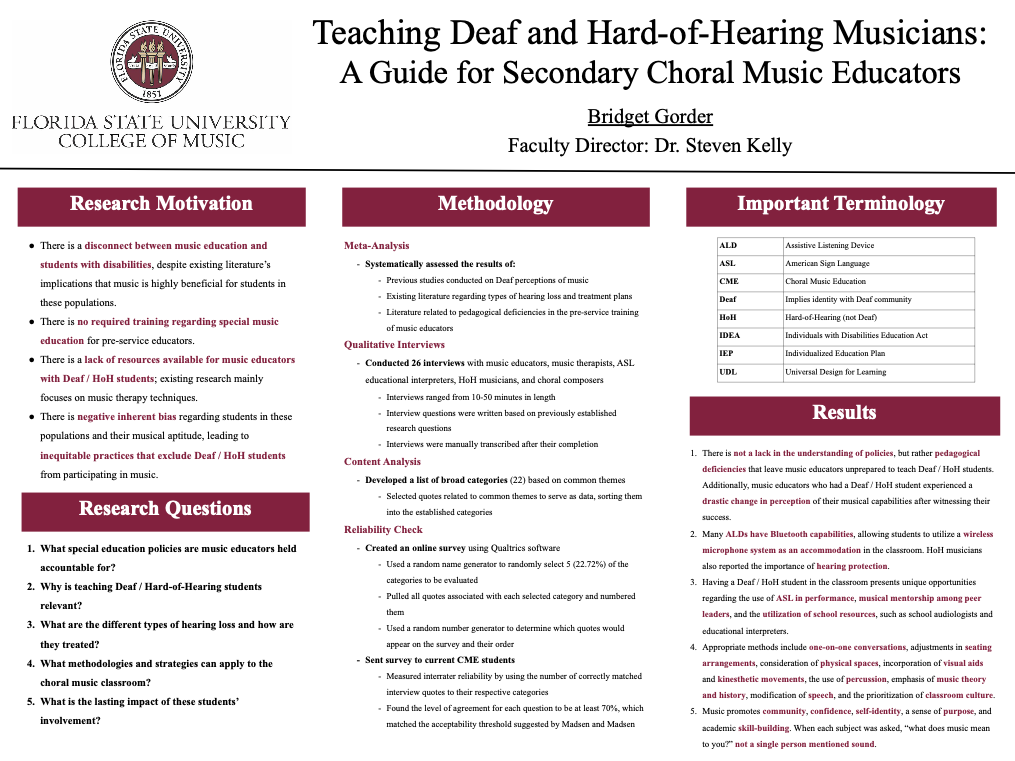Research Symposium
24th annual Undergraduate Research Symposium, April 3, 2024
Bridget Gorder she/her Poster Session 2: 10:45 am - 11:45 am/194

BIO
Bridget Gorder, originally from Denver, Colorado, is a fourth-year Choral Music Education major at the Florida State University College of Music. Alongside honors research, Bridget is an active musician in the Tallahassee community and a highly involved student on campus. This summer, she will be completing an arts administration internship with the Sinfonia Gulf Coast prior to the final semester of her undergraduate career, where she will student teach chorus at Niceville High School in the Florida Panhandle. Additionally, she will be presenting her research at the MUSE Journal’s 5th annual conference, “Music in Dialogue”, hosted by the University of California, Los Angeles, Herb School of Music, in May. Her research will also be published in the conference edition of their Spring 2024 journal. Following her undergraduate degree, Bridget aspires to pursue a master’s degree in arts administration and build a career in not-for-profit music education, hoping to contribute to the movement of equitable access to music education for all.
Teaching Deaf and Hard-of-Hearing Students: A Guide for Secondary Choral Music Educators
Authors: Bridget Gorder, Dr. Steven KellyStudent Major: Choral Music Education (BME)
Mentor: Dr. Steven Kelly
Mentor's Department: Music Education Mentor's College: College of Music Co-Presenters:
Abstract
This thesis is focused on the inclusion of students with hearing impairments in the secondary choral music education. The study was conducted through a meta-analysis of existing literature, participant interviews with current music educators, music therapists, hard-of-hearing musicians, educational interpreters, and choral composers, an in-depth review of the interview transcriptions to serve as qualitative data, and a survey sent to current choral music education undergraduate students to check the interview data’s reliability. The results revealed over a dozen various methodologies that can be applied to hearing impaired students’ learning to facilitate their success, as well as indicated that music educators are generally unprepared to teach students with hearing impairments due to pedagogical deficiencies in university-level pre-service curriculum; additionally, the results implied that the inclusion of this population in the choral music classroom is attainable and that students with hearing impairments share a desire to pursue musical experiences. Ultimately, the study determined that music educators already have most of the tools they need in order to effectively teach these students, and by having a willingness to adapt, the largest change that is necessary is one of perspective.
Keywords: music, hard-of-hearing, deaf, choral, education


